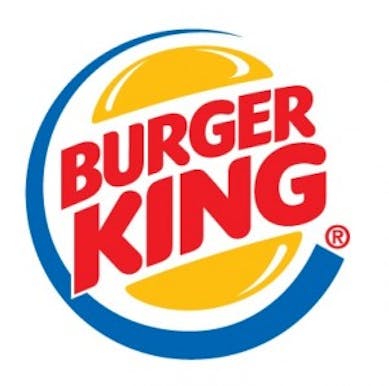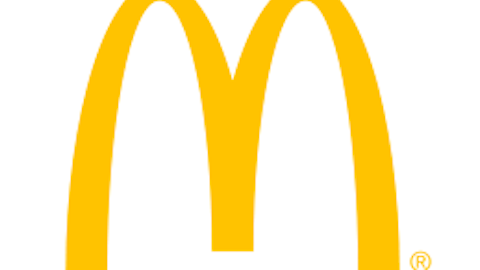The negative impact of avian flu and the horse meat scandal, along with the stringent economic conditions, has taken its toll on nearly every fast-food retailer, but the quarterly results of Burger King Worldwide Inc (NYSE:BKW) indicate that it somehow managed to dodge the problems. Even though Burger King’s revenue dipped significantly, the company managed to increase its net profit and beat the consensus estimates.
How did Burger King Worldwide Inc (NYSE:BKW) manage to steer clear of the roadblocks? Continue reading to find out.
Blast from the past

Even though the drop in the revenue was drastic, Burger King Worldwide Inc (NYSE:BKW) managed to keep its shareholders happy by posting a profit of $62.9 million, an increase of 20.1% year-over-year. The adjusted earnings per share increased $0.14 to $0.21 per share, comfortably beating the consensus estimate of $0.19. This increase in the net profit was primarily driven by reduced expenses. The operating cost dropped 65% as the company paid a smaller amount for wages, food, and rent.
Burger King Worldwide Inc (NYSE:BKW) has more or less completed its transformation to a fully-franchised model as 99% of the 13,000 restaurants are now owned by independent franchisees. Burger King re-franchised around 305 restaurants in the previous quarter and is expected to finish the re-franchising initiative by 2013. The expansion in the franchisee network internationally helped Burger King to reduce its overheads phenomenally.
The increase in the earnings was admirable but, can Burger King maintain its success and perform even better in the future? Let’s find out.
How does the future look?
Burger King is on track to complete its global re-franchising initiative and the transformation to a fully-franchised model is expected to be completed by the end of 2013 as the company is looking to further reduce its expenditure.
The re-imagining of around 600 restaurants in 2012 augmented 10% to 15% to Burger King’s sales. Therefore, Burger King is looking to re-image 40% of its restaurants in Canada and U.S.A. within the next two years.
To tackle stringent economic conditions, Burger King will continue to alter its menu card and endorse more economical options in countries where the sales went downhill. The company is also planning also set-up numerous restaurants around the globe to expand its franchisee network and boost its margins.
Lastly, Burger King will also be expanding in Pakistan as the company is looking to make the most out of the high population of the country. The development is gathering steady pace as Burger King is looking to cover this territory as soon as possible.
Recuperating rivals
After looking at all these plans, it is hard to think of a reason why Burger King will not perform better in the future but, the presence of international heavyweights can potentially have a negative effect on the company’s sales. Which are those companies? Let me tell you one by one.
McDonald’s Corporation (NYSE:MCD)
McDonald’s Corporation (NYSE:MCD) is perhaps the biggest fast-food retailer in the world and is a much bigger corporation than Burger King. The company shared its quarterly results last month affirming an increase in both revenue and earnings. McDonald’s revenue surged 2.43% to $7.1 billion while the earnings increased 3.7% to $1.4 billion. The diminished sales in Europe and Asia-Pacific region prevented the company from satisfying the consensus estimates.
McDonald’s is trying to perk up its sales in China which were affected by avian flu. The company is diversifying its menu beyond chicken and intensifying its marketing initiatives that focus on better quality and safety of its products.
McDonald’s has also billed a budget of $3 billion to complement its plan of opening 1,200 to 1,300 new restaurants around the world. This resonates with the company’s need of luring more customers and expanding its global base.
Yum! Brands, Inc. (NYSE:YUM)
Yum! Brands, Inc. (NYSE:YUM) hopes of boosting its margins were brutally damaged by the spread of avian flu. A drastic drop of 16% in the earnings annoyed the shareholders but, with time, the widespread media surrounding avian flu has subsided and the sales are gradually increasing.
In order to rise above these intricacies, the company intensified its advertising initiatives, assuring good quality of food being served in the restaurants. Apart from that, to compensate for the loss in the previous quarter, Yum! Brands is looking to set-up 700 new KFC outlets in China.
Globally, the company is stern on its objective to expand its fan-base and is looking to open 125 Pizza Hut restaurants in U.S.A. by the end of fiscal year 2013. The company is hopeful that these implementations will enable it to add to its sales and make up for losses of the previous quarter.
Ultimate summary
Bearing in mind that Burger King will soon be transformed into a fully-franchised model, I believe it will yield a good value in the future. Reduction in operating costs will continue to benefit the company’s bottom-line, whereas I expect the expansion is Pakistan to reap fruits.
The article This Stock Deserves a Place in Your Portfolio originally appeared on Fool.com and is written by Ayush Singh.
Ayush Singh has no position in any stocks mentioned. The Motley Fool recommends Burger King Worldwide and McDonald’s. The Motley Fool owns shares of McDonald’s. Ayush is a member of The Motley Fool Blog Network — entries represent the personal opinion of the blogger and are not formally edited.
Copyright © 1995 – 2013 The Motley Fool, LLC. All rights reserved. The Motley Fool has a disclosure policy.




